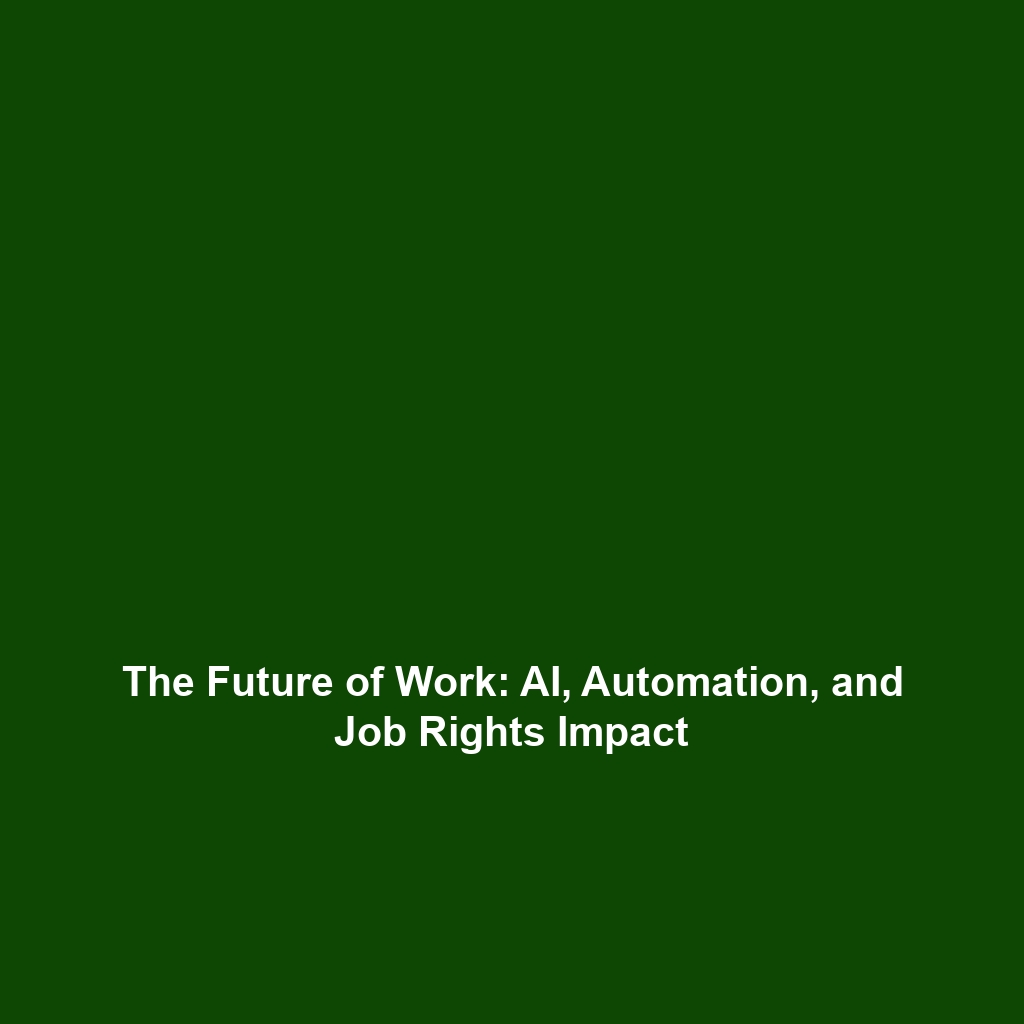AI and Employment: The Impact of Automation on Jobs and Labor Rights
The integration of artificial intelligence (AI) within various industries has transformed labor markets globally, often prompting discussions about employment and labor rights. As automation advances, understanding its implications is vital, not only for economic growth but also for ethical considerations surrounding AI Ethics. This article examines the significant impact of automation on jobs, raising critical questions about the future of work and equitable labor practices.
Key Concepts
To comprehend the relationship between AI and employment, several key concepts emerge:
- Automation: The use of technology to perform tasks that were previously done by humans, leading to increased efficiency but also potential job displacement.
- Job Displacement: The loss of jobs due to automation, which raises ethical concerns regarding the preservation of labor rights.
- Labor Rights: Legal rights and protections for workers, critical to ensuring fair treatment in the age of AI and automation.
- AI Ethics: A field focusing on the moral implications of AI technologies, including the responsibilities towards the workforce affected by automation.
Applications and Real-World Uses
AI and automation are reshaping industries in various ways, demonstrating significant applications in employment:
- Manufacturing: AI-powered robots increase production efficiency, but they also reduce the need for human labor, prompting discussions on labor rights.
- Retail: Self-checkout systems and AI-driven inventory management reduce employee workloads while raising questions about job security.
- Transportation: Autonomous vehicles promise efficiency and safety improvements, yet threaten traditional driving jobs.
Current Challenges
Studying and implementing AI’s impact on employment faces several challenges:
- Job Loss: As automation progresses, industries struggle to retrain displaced workers.
- Ethical Concerns: The ethical implications of prioritizing efficiency over ethical labor practices are increasingly highlighted.
- Regulatory Issues: Lack of comprehensive regulations governing AI’s role in the workplace creates uncertainty.
- Societal Impact: The societal consequences of widespread job loss can lead to economic and social unrest.
Future Research and Innovations
Innovations in AI and possible breakthroughs warrant attention for their future implications on employment:
- Collaborative Robots (Cobots): Designed to work alongside humans, offering opportunities to enhance productivity without complete job displacement.
- Upskilling Programs: New educational frameworks aimed at equipping the workforce with skills needed for new AI-driven roles.
- AI Ethics Frameworks: Development of guidelines and frameworks to govern AI implementation fairly and ethically in workplaces.
Conclusion
Understanding AI and employment is crucial for addressing the repercussions of automation on jobs and maintaining labor rights within the overarching framework of AI Ethics. As we navigate this evolving landscape, it remains essential for stakeholders to engage in dialogue about equitable practices and protections for affected workers. For further reading on AI Ethics and its implications on society, visit our dedicated sections on technology and labor rights.
